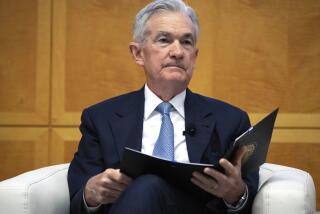OPEC keeps oil output target on hold, predicts low prices
VIENNA — OPEC decided to keep its oil output target on hold Friday and predicted that prices would remain low for the foreseeable future — good news for oil-hungry international industries and consumers at the gas pump.
The cartel said its output level would remain at 30 million barrels a day despite the fact that prices were still low compared with a year ago. OPEC left it to member states to restrain any overproduction, an acknowledgment of the cartel’s inability to enforce its own limits as it struggles to control world supply and prices.
With non-OPEC oil-producing countries ready to ramp up production if prices go much above present levels, OPEC’s secretary general said the cost of crude will stay relatively low for a while.
“The reality now is that we cannot have these [prices] anymore,” Abdullah al-Badri said.
The international price of crude was down $1.62 at $62.10 after Friday’s announcement, having traded above $115 a barrel in 2014.
Although the Organization of the Petroleum Exporting Countries accounts for more than a third of the world’s oil, its power to determine supply and demand has been steadily eroding as outsiders capture large shares of the market. It gave up imposing quotas on individual members four years ago after these were consistently ignored.
That has led to an overhang in recent months of more than 1 million barrels a day of OPEC production beyond the target. But the likelihood of continued overproduction persists.
OPEC powerhouse Saudi Arabia is fighting to keep market share against U.S. shale oil, Iran plans to increase production in anticipation of an end to sanctions that have crimped its crude exports and other countries are trying to compensate for low prices by selling more.
“OPEC realizes … that it is now in a highly competitive market, in which its own members will compete against each other and collectively against non-OPEC producers, and in particular shale producers,” said John Hall of Alfa Energy in London.
Announcing the decision to keep the present target, an OPEC statement urged members “to adhere to it.” But al-Badri acknowledged that, as in the past, countries had only been assigned “indicators” — not quotas — in attempts to hew to the target.
In contrast, Saudi and Iranian comments Friday reflected the countries’ determination to produce what they decide.
“Production policy is a sovereign right,” Saudi oil minister Ali al-Naim said.
Iranian Petroleum Minister Bijar Namdar Zangeneh, meanwhile, advised OPEC to make room for increased output from his country as early as the end of the month. That’s the target date for a deal between Tehran and six world powers envisaging an end to sanctions on the Islamic Republic in exchange for curbs on its nuclear program.
Iran hopes to ramp up production by up to 1 million barrels a day within a year once sanctions are gone, and Zangeneh said his country doesn’t “need any decision from the OPEC side to return to the market, because it’s our right.”
More to Read
Inside the business of entertainment
The Wide Shot brings you news, analysis and insights on everything from streaming wars to production — and what it all means for the future.
You may occasionally receive promotional content from the Los Angeles Times.










